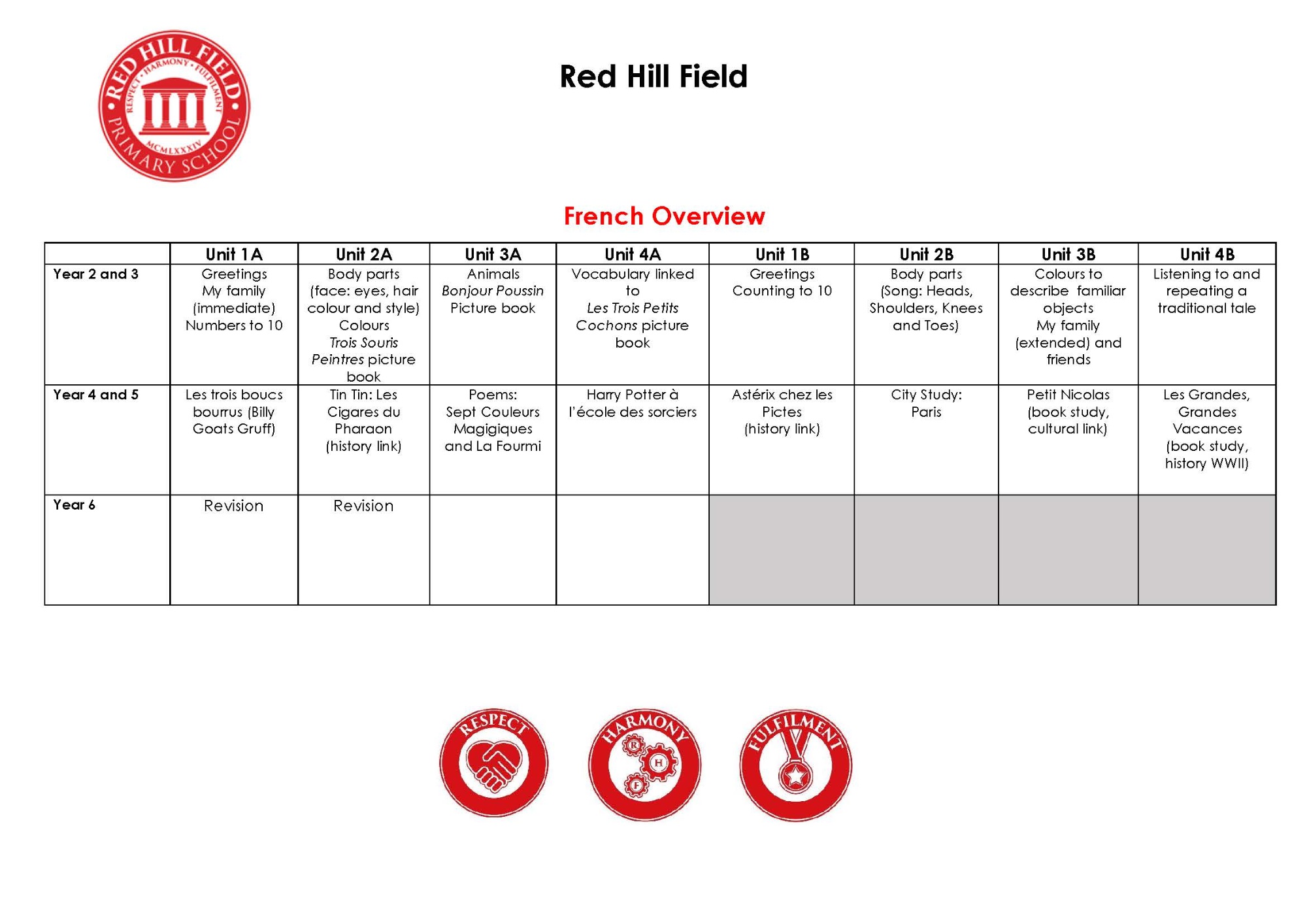Languages
Learning a foreign language is a liberation from insularity and provides an opening to other cultures. A high-quality languages education should foster pupils’ curiosity and deepen their understanding of the world. The teaching should enable pupils to express their ideas and thoughts in another language and to understand and respond to its speakers, both in speech and in writing. It should also provide opportunities for them to communicate for practical purposes, learn new ways of thinking and read great literature in the original language. Language teaching should provide the foundation for learning further languages, equipping pupils to study and work in other countries.
(National Curriculum 2014)

At Red Hill Field we are linguists.
We learn to describe people, places, things and actions orally and in writing.
We develop our knowledge through an appreciation of stories, songs, poems and rhymes in the language.
We learn to speak in sentences, using familiar vocabulary, phrases and basic language structures.
We broaden our vocabulary and develop our ability to understand new words that are introduced into familiar written material.
We learn to develop accurate pronunciation and intonation so that others understand when we are reading aloud or using familiar words and phrases.
We learn to present ideas and information orally to a range of audiences read carefully and show our understanding of words, phrases and simple writing.
We learn to engage in conversations; ask and answer questions; express opinions and respond to those of others; seek clarification and help.

